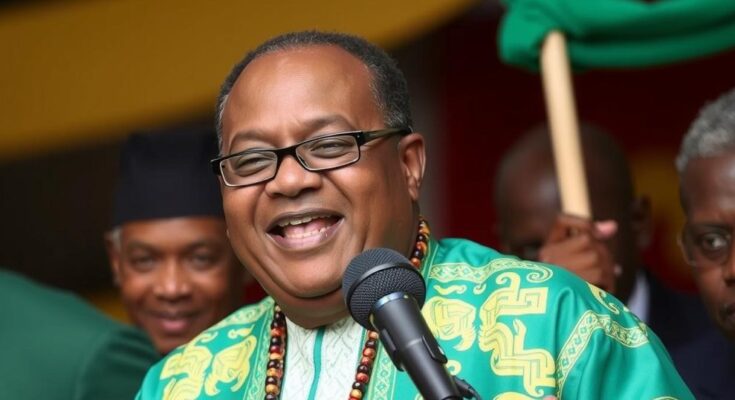Former Ghanaian leader John Mahama has achieved a historic comeback by winning the presidential election, following Vice President Mahamudu Bawumia’s concession. The elections were influenced by widespread dissatisfaction with the economy and environmental issues, particularly regarding illegal mining. Mahama’s victory represents a demand for change, with a promise to improve governance and tackle economic challenges.
In a remarkable political shift, Ghana’s former leader John Mahama has emerged victorious in the recent presidential election, following the concession of incumbent Vice President Mahamudu Bawumia. Bawumia acknowledged in his concession speech that Mahama had decisively won the election, prompting him to call Mahama and formally congratulate him as the President-elect of Ghana. The National Democratic Congress (NDC), which Mahama leads, also achieved victory in the parliamentary elections, reflecting a significant change in the political landscape of the country.
Despite the electoral victory, the context of this election is noteworthy. Ghanaians have been expressing their dissatisfaction with the current government’s economic management, marked by high inflation, rising unemployment rates, and increasing living costs. The discontent has been exacerbated by an environmental crisis stemming from illegal gold mining practices, which have severely impacted both land and water resources. Mahama framed this election as a pivotal moment for Ghana, pledging to restore good governance and accountability, thereby addressing the pressing needs of the populace. With Mahama’s return to power, the country anticipates a potential shift in economic policy and environmental stewardship that has been much needed in recent times.
Ghana’s political environment has been characterized by a competitive two-party system dominated by the National Democratic Congress (NDC) and the New Patriotic Party (NPP). The economic challenges facing the nation are significant, compounded by systemic issues such as illegal mining, which has devastated natural resources and local communities. As the economy suffers from various crises, including high inflation rates and unemployment, the electorate has demonstrated a strong demand for change, which culminated in the recent elections. John Mahama’s experience as a former president positions him uniquely to address these issues with renewed vigor upon his return to office.
The recent presidential election in Ghana signifies a turning point in the nation’s governance, with John Mahama’s return as president heralding hope for reforms in economic management and environmental protection. The concession by Vice President Bawumia underscores the importance of peaceful political transitions in maintaining national stability. With pressing economic challenges and public demand for accountability, Mahama faces the essential task of implementing effective policies to restore faith among Ghanaians and address long-standing issues.
Original Source: www.cnn.com




